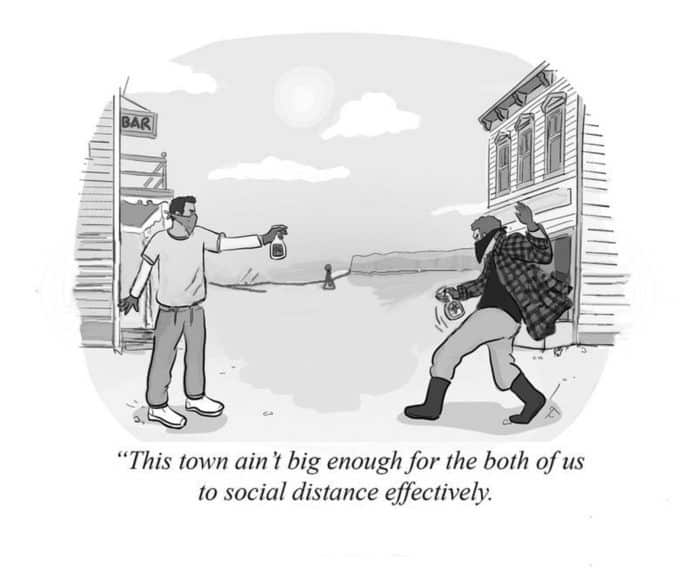By David Aitken
People say the pen is mightier than the sword, but I wouldn’t fancy fighting a duel with a biro or a keyboard.
If you are ever challenged to a duel, there are a few things you ought to know before you accept. ‘Don’t accept’ is probably one of them. Despite some of what I am about to say, most duels are not social occasions. This is true especially of duels to the death.
Duels were often fought because of what one gentleman called another, or because one man threw a glove at another. Doesn’t it make your blood boil when that happens? What use is a single glove? But handwear apart, they were quite formal affairs, with a dress code and a stipulation as to which refreshments would be served before the shooting or swordplay began. A doctor was usually in attendance, presumably in case someone swallowed a bad oyster. Never eat uncooked shellfish, is my advice, especially if you’re feeling nervous.
Swordsmen duelling at dawn frequently carried lanterns in order to see each other clearly, an important consideration when you could refuse to duel with a social inferior. What if your opponent appeared through the morning mist in his butler outfit, or carrying his chimney-sweep brush, confident of going to work after he killed you? Fencing manuals integrated lanterns into their lessons, showing how to parry blows or blind an opponent with them, which all sounds much less pleasant than duelling banjos.
You weren’t even safe if you were one of the seconds assisting one of the combatants. In some duels, the second had to take the place of the primary duellist, if the primary was unable to finish the duel — those oysters again? There were examples of duels with pistols taking place at just two or three paces apart — had they forgotten their lanterns? — so it was a good idea to shoot first and apologise later for the misunderstanding. (“Last-minute substitute from the sidelines… not quite sure of the rules,” etc.) Little wonder that duelling was legal in Paraguay only if both participants were blood donors.
Not all duels were fought with guns or swords. Throughout history, weapons of choice have included billiard balls, spears, tridents, sniper rifles, and hand-slapping, whereby Imperial officers in Russia stood face to face trading blows to the cheeks until one collapsed, the officer not the cheek. I suspect the usual pre-match refreshments in such circumstances had included vodka.
Although the overwhelming majority of duels were fought over women, some of the other reasons why men sought satisfaction for alleged slights seem silly nowadays. What is so terrible about being called a varlet or a bounder? What do those even mean? As for branding a person a ‘cad’, Oxford students applied the word dismissively to a man who loitered, something students would know a lot about. They certainly wouldn’t get up at dawn to slap each other about the face for such a trivial offence.
Researching this article (yes, I do!) I learnt that a carpetbagger was a term of calumny for someone seeking influence where they had no local connections. Which reminded me that nobody in Iceland voted in favour of a proposed Hot Cheese Sandwich Bar in Reykjavik called Melted. Perhaps the name was too suggestive of global warming.
I hope you now know enough about duels to avoid them like the plague. Which is one modern challenge we can safely leave in the hands of our razor-sharp scientific duellists. Fortunately the challenged parties in any duel get to choose their own weapons and our side has chosen needles. At no paces. With the usual refreshments to follow.





